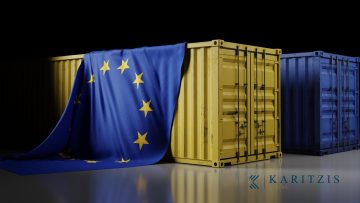The Law
The Cyprus law on the protection of undisclosed know-how and business information against their unlawful acquisition, use and disclosure 164(I)/2020 (the “Law”) came into force on 27 November 2020, implementing the EU Directive 2016/943 (the “Directive”). The main aim of the Directive is to harmonise the law within the European Union on the protection against the misappropriation of know-how and business information (trade secrets), so that companies can exploit and share such trade secrets with their business partners across the European Union, turning their innovative ideas into new business opportunities.
What is a “trade secret” and who is considered to be a “trade secret holder”?
A “trade secret” means information that meets all of the following requirements:
a) it is secret in the sense that it is not generally known among or readily accessible to persons within the circles that normally deal with the kind of information in question;
b) it has commercial value because it is secret;
c) it has been subject to reasonable steps under the circumstances, by the person lawfully in control of the information, to keep it secret.
A “trade secret holder” means any natural or legal person lawfully controlling a trade secret.
When is an acquisition, use and disclosure of trade secrets considered to be lawful?
The acquisition of a trade secret shall be considered lawful when the trade secret is obtained by any of the following means:
a) independent discovery or creation;
b) observation, study, disassembly or testing of a product or object that has been made available to the public or that is lawfully in the possession of the acquirer of the information who is free from any legally valid duty to limit the acquisition of the trade secret;
c) exercise of the right of workers or workers’ representatives to information and consultation in accordance with Union law and national laws and practices
d) any other practice which, under the circumstances, is in conformity with honest commercial practices
The acquisition, use or disclosure of a trade secret shall be considered lawful to the extent that such acquisition, use or disclosure is required or allowed by the EU or national law.
When is an acquisition, use and disclosure of trade secrets considered to be unlawful?
The acquisition of a trade secret without the consent of the trade secret holder shall be considered unlawful, whenever carried out by:
a) unauthorised access to, appropriation of, or copying of any documents, objects, materials, substances or electronic files, lawfully under the control of the trade secret holder, containing the trade secret or from which the trade secret can be deduced;
b) any other conduct which, under the circumstances, is considered contrary to honest commercial practices.
The use or disclosure of a trade secret shall be considered unlawful whenever carried out, without the consent of the trade secret holder, by a person who is found to meet any of the following conditions:
a) having acquired the trade secret unlawfully;
b) being in breach of a confidentiality agreement or any other duty not to disclose the trade secret;
c) being in breach of a contractual or any other duty to limit the use of the trade secret.
The acquisition, use or disclosure of a trade secret shall also be considered unlawful whenever a person, at the time of the acquisition, use or disclosure, knew or ought, under the circumstances, to have known that the trade secret had been obtained directly or indirectly from another person who was using or disclosing the trade secret unlawfully.
What measures may be taken in case of a violation?
The court, at the request of the trade secret holder, can order any of the following provisional and precautionary measures against the alleged infringer:
a) The cessation of or, as the case may be, the prohibition of the use or disclosure of the trade secret on a provisional basis;
b) The prohibition of the production, offering, placing on the market or use of infringing goods, or the importation, export or storage of infringing goods for those purposes;
c) The seizure or delivery up of the suspected infringing goods, so as to prevent their entry into, or circulation on, the market.
Moreover, according to the Law, the court can -as an alternative to the measures listed above- upon the request of the injured party, order an infringer who knew or ought to have known that he, she or it was engaging in unlawful acquisition, use or disclosure of a trade secret, to pay the trade secret holder damages appropriate to the actual prejudice suffered as a result of the unlawful acquisition, use or disclosure of the trade secret.
Why is the law on trade secrets important?
The Law especially strengthens the position of start-up companies that own trade secrets by increasing legal certainty, in particular with respect to cross-border cooperation or trade; facilitating the enforcement of rights throughout Europe; enabling them to protect their know how and business information without the need of meeting the standards of an intellectual property rights regime.




